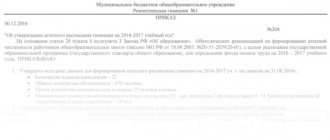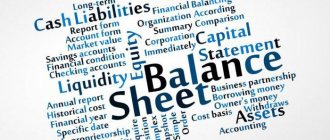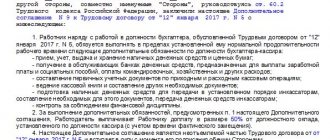Start of accounting. Who should do the accounting?
Keep records and submit all reports to the Federal Tax Service, Pension Fund of the Russian Federation, Social Insurance Fund and Rosstat through Kontur.Accounting.
Get free access for 14 days
The obligation to maintain accounting records is dictated by Federal Law No. 402-FZ “On Accounting”. It states that accounting must be maintained by all legal entities, commercial and non-profit organizations, and neither the form of ownership nor the taxation system removes this obligation.
Until 2013, companies using the simplified tax system could not keep accounting records, but in 2013 this right was taken away from them. However, there are concessions especially for small organizations. For example, Federal Law No. 209-FZ allows small businesses to keep accounting records in a simplified form.
The only exception is individual entrepreneurs: they are not yet required to maintain accounting. Lack of accounting records or gross violations of accounting rules are punishable by fines.
How to become an accountant. Courses 1C Accounting
December 27, 2020
This article is intended for those who are wondering “how to become an accountant” and keep accounting records on their own, both for personal purposes (business) and for doing work at an enterprise. The task is quite doable, but you need to have a clear idea of what you really want. We will begin with an analysis of these issues.
Why study accounting?
In a world built on commodity-money relations, accounting for the movement of material assets, income, expenses and other things is very important. Therefore, good accountants will always be needed, and this profession will always be in demand in the labor market.
artemvm.info_7f93df247595aaf453913f2d48dc9410
Firstly , most often accounting is studied in order to work in an enterprise in a corresponding position. This is the most common reason for learning anything: first we study, and then we work.
The profession of an accountant is becoming more and more in demand every year, as the population is growing, which means the number of enterprises is growing, as well as their size.
Someone has to manage all this, calculate profits, and so on? That is why the total number of accountants is growing and will continue to grow.
artemvm.info_7f93df247595aaf453913f2d48dc9410
The graph above shows the change in the number of small businesses (SE on the vertical axis) by year. As you can see, after the 2014 crisis there has been an increase in small businesses. The forecast for the near future looks very encouraging.
Secondly , the share of small and medium-sized businesses is continuously growing, and small ones at a much faster pace. If someone has created a small LLC or at least an individual entrepreneur, then at least one accountant is already needed. On the one hand, this is a workplace for someone; on the other hand, there are obvious costs for the owner. The last one is worth special mention.
For small companies (mainly individual entrepreneurs):
Hiring a special employee to handle accounting and taxes is often a very significant expense. If we take into account the fact that most small companies do not conduct complex activities, then the desire of the owner to become an accountant and keep all the records himself becomes quite understandable.
It is for this reason that a large number of individual entrepreneurs and owners of small firms study accounting and record keeping in specialized programs. However, what is important here is not only the desire to save on wages and social benefits. payments, but also the desire to fully control your own business.
How to become an accountant from scratch
First of all, you should still decide what for . Any training implies a specific goal. No goal - nothing to strive for. Decide whether you want to keep records in your own company or are going to work as an accountant at someone else’s company.
artemvm.info_7f93df247595aaf453913f2d48dc9410
If you want to learn how to do accounting, you should start by studying accounting theory. This is, of course, if you want to do something really serious one day, and not just enter standard documents into the program. Many people do not want to know the theoretical foundations of accounting, because they are sure that they can do it anyway with the help of a modern computer program, for example 1C.
artemvm.info_7f93df247595aaf453913f2d48dc9410
In principle, if you are going to work for yourself, then in some cases you can really only get by with the ability to use 1C or a similar program for accounting. But this approach has the right to exist only for simple types of activities. In addition, if you want to get a job as an accountant, then studying the theory at least to a minimum extent is absolutely necessary for you.
https://www.youtube.com/watch?v=w5Nz8hs_GQQ
The second step is to study a program for accounting, since now no one keeps records on paper. How do you want to become an accountant if you don't know how to use a computer? Therefore, first you need to be able to use Windows, and then 1C and other programs.
The third step is to gain experience in accounting. This is, generally speaking, a separate problem, so let’s talk about it separately.
How to become a chief accountant?
Why “main”? What I meant here was not so much a standard job title, but rather the fact that such a person must have the skills to independently keep records “from start to finish,” that is, from entering primary documents to submitting reports to the Federal Tax Service and other government agencies. organs. So the concept of “chief accountant” can be considered more broadly.
For example, if there is a small company and there is an accountant who keeps ALL records, then this, in fact, is the chief accountant. This example clearly shows that here you need to be able to do EVERYTHING in one person.
This, of course, does not mean that you need to know absolutely all the subtleties that exist in the world.
To work as a chief (only) accountant, you need to be good at what is associated with accounting in a given field of activity carried out by the enterprise.
Of course, to do this kind of work, you also need to have the relevant experience. The fact is that without experience, people are very reluctant to hire an accountant. But there is still a way out here.
First, get a job as an assistant accountant - this will allow you to gain the necessary experience. There are also some chances of getting a job as an accountant in a very small company or individual entrepreneur. The salary in both cases will be small, but will allow you to gain the necessary experience.
Warning: sometimes there are unscrupulous companies that force an accountant to engage in illegal transactions. Often such companies are ready to hire people without experience. You should not apply for such vacancies, since you may not even understand that your operations are illegal. And if something happens, you will have to answer in full.
artemvm.info_7f93df247595aaf453913f2d48dc9410
How to become a 1C accountant?
This question is also asked quite often. This is due to the fact that the 1C company is actually a monopolist in the creation of accounting programs in the Russian Federation. The most famous 1C configuration is “Enterprise Accounting” or simply 1C Accounting. The ability to keep records in 1C is one of the important points when applying for a job, since most often records are kept in this program.
As for the profession, there is the concept of “accountant”, and 1C or something else is the tenth thing. The main thing is that you know how to use the computer program that is used in a particular company. And since most often this is 1C, this is where the concept of “1C accountant” arose. This, of course, does not mean that you do not need to study theory.
However, if you only need to enter primary documentation into the program, then first you just need to study 1C, and mastering the theory can be left for later. You can also study accounting theory while considering 1C - this is a fairly common option. For example, I created my 1C Express course with exactly this in mind.
So where to start?
The easiest option is to buy a good textbook on accounting theory and look into it while studying the 1C Accounting program. This will allow you to master the practical basics of accounting in the shortest possible time.
The main thing is to start. It's never too late to expand your knowledge and experience.
Source: https://artemvm.info/article/157-kak-stat-buhgalterom
What documents regulate accounting in an organization?
As already mentioned, the main document regulating accounting nationwide is Federal Law No. 402-FZ “On Accounting”. Other basic documents are accounting regulations (APS), which describe how to conduct accounting in practice. Among the options offered in the PBU, you need to choose those that will be most beneficial for the business financially and will eliminate unnecessary questions from representatives of regulatory authorities and investors.
And, finally, another fundamental document - the chart of accounts for accounting the financial and economic activities of organizations, approved by Order of the Ministry of Finance dated October 31, 2000 No. 94n (the latest edition was approved by Order of the Ministry of Finance dated November 8, 2010 No. 142n). The organization's chart of accounts is drawn up and approved on the basis of this chart of accounts.
How to learn accounting entries?
In accounting, as in any science, there is one golden rule - in order to remember something, you need to understand its basic principles.
You may be interested in: How to find a good job
Based on this, let’s figure out how to learn accounting entries:
- divide the main accounts into logical groups - into one you will combine goods and material assets, into another - cash, the third - settlements with agents and employees, the fourth and fifth - costs and results, respectively, the sixth - taxes;
- make a printout with the account symbols and keep it handy, this way you will quickly remember all their meanings, even though at first it will seem to you that there are quite a lot of them;
- figure out how to create a transaction - it represents a certain balance of funds that moves from one place to another, if money appeared in one of the accounts, then it left the other;
- the principle of movement is from right to left, debit is on the left side, and credit is always on the right;
- start with simplified entries using the example of accounting for yours or a third-party trading organization - the purchase of goods for a certain amount, invoices for office rent, and so on;
- reflect all incoming and outgoing accounts in the balance sheet, the so-called balance sheet, and see what data you can get from this report; based on it, you can also calculate the profit of your company;
- familiarize yourself with additional terms and their designations - subaccount, subconto and others, their results are also displayed in the above statement;
- Constantly train your skills and knowledge in practice, set yourself new, more complex tasks.
It should be remembered that the main thing is desire, nothing is impossible. And then - efforts and labor will grind everything down!
Where to start accounting in an organization?
Keep records and submit all reports to the Federal Tax Service, Pension Fund of the Russian Federation, Social Insurance Fund and Rosstat through Kontur.Accounting. Get free access for 14 days
Accounting statements are submitted once a year, but accounting must be kept regularly and systematically, so that after the end of the reporting period you do not have to search for primary documents among counterparties and hastily post accounting entries to accounts. Moreover, accounting in an organization begins before the first transaction occurs. As soon as the title documents for the company are received, local regulations can be drawn up that regulate accounting in the organization.
First of all, the accountant must:
- Develop accounting policies
- Prepare forms of primary documents
- Approve the chart of accounts
Get ready to take a hit
Working with finances is very responsible. You need to understand this already when you first enter the Faculty of Economics. After all, not everyone is ready to work with money, make payments, sign serious documents and be responsible for every signature. You need to be prepared for the fact that you will have to bear not only financial, but also criminal responsibility for your work.
How to write an organization's accounting policy?
An accounting policy is an internal document of a company that defines the principles and options for accounting. The accounting policy must be drawn up and approved within 90 days from the date of state registration of the legal entity.
In small companies where accounting is not rich in features, accounting policies are often adopted once for the entire life of the enterprise. However, if necessary, changes are made to the academic policy, for example: due to the emergence of a new area of activity of the organization or changes in legislation.
If an audit comes to you, be prepared to present your accounting policy: this will be the first thing they ask for. To ensure that inspectors do not have the opportunity to interpret the ambiguities of the law not in your favor, describe in your accounting policy the features of accounting in your business.
TOP 9 accountant skills that will be in great demand
In addition to taxes, document flow and postings, what should a financial specialist know and be able to do in order to remain competitive and in demand? In this article, we have identified the TOP 9 skills with which any employer will want to immediately get an accountant on their team.
Ability to reduce the company's tax burden
The results of a survey of directors and HR managers showed that knowledge and ability to put into practice various methods of legal tax optimization is the most in-demand skill of an accountant today. It bypassed even such a professional quality as real work experience. Almost every employer (89%) not only wants, but is also diligently looking for specialists of this level for their company.
Management does not always navigate the tax system like a duck to water. Therefore, modern accountants are required not only to know the methods themselves and benefit from their implementation, but also to forecast all the risks and possible negative consequences for both the company and the director.
At the same time, only 40% of accountants have practical experience in reducing taxes. Everyone else is planning, and most importantly, seriously aiming to master the specifics of tax planning and optimization.
2. Professional experience, innovative thinking and passion for advanced training
Most employers need accounting practitioners who can quickly adapt to dynamically changing market conditions and legislative innovations. The cost of a candidate increases if he previously worked in the field of external or internal audit. But this factor is seen as an advantage, not a necessity.
Of course, work experience is important. However, today employers have slightly changed their tactics for selecting candidates for financial positions.
Many of them can overlook the lack of professional experience of an accountant if he has a sparkle in his eyes and a desire to immerse himself in the work right at the interview.
Today, an ambitious innovative accountant with sparkling eyes, fresh ideas and a desire for professional development is 2 times more likely to get a prestigious, highly paid job than an uninitiated conservative candidate, albeit with many years of experience.
Professional experience, as understood by management, is closely intertwined with continuous professional development. An advantage in interviews is given to those specialists who have diplomas, certificates, certificates confirming the relevance of their knowledge in the field of accounting, tax and management accounting, financial management, internal audit, etc.
3. Ability to assume the key responsibilities of the Chief Financial Officer (CFO)
Ability to analyze and evaluate the financial and economic activities of a company, calculate financial indicators, forecast business development, engage in budgeting and pricing.
In fact, this is the job of the CFO. But it’s no secret that today these functions are safely transferred to the shoulders of chief accountants and accountants in order to save on another TOP specialist.
Therefore, in order to be competitive and in demand, you need to go beyond the accounting functionality and learn to think on a larger scale. It’s not just about submitting reports on time, but also building the company’s financial policy.
Not just evaluate decisions, but also participate in their adoption and implementation. Therefore, with 100% confidence we can say that the “accountant-finder” in one specialist is the support, right hand and confidant of the general director.
Moreover, this is also a huge plus for accountants themselves! They have full knowledge of the company’s financial situation and will certainly never encounter such an established problem as a professional conflict between accountants and financial managers.
Management Accounting Skills
Experience in setting up management accounting, maintaining management documentation and making management decisions is directly related to the skill described above.
Such accounting allows you to quickly answer the questions: How efficiently did the company perform last month? Which business or department generated the most profit and, most importantly, why? Which units performed “plus” and which ones performed “negatively”? How attractive is the company to creditors and investors? To obtain reliable information about the real state of affairs in the company, it is necessary to have access to all financial documents. This means that here you will have to get into the accounting jungle. Well, who else, if not an accountant, can cope with this task better than anyone else? Hence the high demand - 70% of employers today need a specialist with such skills.
5. Communication skills and ability to work in a team
Communication skills, leadership abilities, innovative thinking and the ability to think strategically - these qualities are critical today for accountants who aspire to a solid position and high income.
In general, a financial specialist is a person who is forced to constantly interact with everyone: with the management and employees of the company, with representatives of credit institutions, with tax authorities, suppliers, investors, shareholders, etc.
If he has difficulty making contact and is constantly immersed solely in his duties, this is a reason to be alarmed.
Accounting is a separate kingdom in the company.
However, in the understanding of employers, a valuable accountant is not someone who is fixated only on numbers, papers and accounting, but a person who thinks big, sees all the company’s business processes, and knows how to get along well with other team members.
It is important for him to be able to make serious decisions and not be afraid to take responsibility for them. Today it is more important to be a team player, to play with others - and over time this will be given more and more importance.
Ability to speak a language understandable to the director
The ability to explain complex things in simple terms is a truly valuable skill. Therefore, an accountant who is able to clearly convey a working issue to the manager without professional slang is a godsend for any director. And not only for the director, but also for the team as a whole. After all, where do employees run with questions? Of course, to the accounting department.
7. Using IT technologies to increase productivity
In the 21st century, every specialist should have a computer background, but for chief accountants and accountants this is simply a must-have, since their professional activities require them to work with a huge amount of information. And you need to be able to analyze, process and effectively use this information when making decisions.
According to experts, mastery of digital technologies is a necessary condition for the successful development of financial specialists.
Most directors believe that in the future many standard accounting operations and tasks will be automated.
And without technical literacy, automated data collection and processing processes will become too complex and confusing, resulting in a waste of resources and a negative impact on productivity.
Quick adaptation to external changes
Change and risk management is a quality that until recently was not in demand or valued by employers.
But in a dynamically changing economy and constant innovations in legislation, directors increasingly began to need specialists who would become “engines of change” and could easily introduce any changes or reforms into the company’s accounting policies.
Today, it is not so much important for accountants to be constantly prepared for radical changes in the external environment, but to be able to constantly live in a transitional state, tune in to constant improvements and calmly respond to instability. Yes, indeed, market changes pose a new challenge to accountants, but at the same time provide them with new opportunities for development.
Knowledge of international standards (IFRS)
International financial accounting standards are a ticket to the big league for any specialist. In an accountant who knows IFRS, the manager sees a person who can increase the level of comprehensive trust in his company.
He is well aware that financial reporting that complies with the international format can serve as a magnet for profitable financing and attracting foreign investment.
As a result, the company will be able to successfully enter the global market, be competitive and even become a leader.
Mastering the practice of IFRS is like learning the universal language of financiers around the world.
According to experts, accountants who do not study international standards in the next 2-3 years will cease to be valued in the eyes of employers. Without this knowledge, they will not be able to work effectively for either foreign or domestic companies.
Source: https://finacademy.net/materials/article/top-9-navykov-bukhgaltera-s-kotorymi-on-budet-naraskhvat
What to write in the accounting policy?
Keep records and submit all reports to the Federal Tax Service, Pension Fund of the Russian Federation, Social Insurance Fund and Rosstat through Kontur.Accounting. Get free access for 14 days
The accounting policy regulates the maintenance of both accounting and tax accounting, so it is convenient to divide it into two parts.
In terms of accounting, the accounting policy must contain:
- Working chart of accounts of the organization
- Form of explanations for the balance sheet and profit and loss statement
- Classification of the organization’s income and expenses into income and expenses from ordinary activities and other income and expenses (taking into account the specifics of the organization’s activities)
- Level of materiality of error for financial statements items
- The procedure for revaluing fixed assets or information that fixed assets are not revalued, methods for determining the useful life and calculating depreciation of fixed assets and intangible assets
- The procedure for assessing inventories (at the cost of each unit, at the average cost, or using the FIFO method - at the cost of the first acquisition of inventories)
- Information about who will do the accounting: manager, accountant or accounting service.
In addition, small businesses indicate whether they will apply PBU 18/02 “Accounting for corporate income tax calculations” and PBU 8/2010 “Estimated liabilities, contingent liabilities and contingent assets.”
Tax accounting rules must contain
- Tax accounting registers developed by the company in accordance with the requirements of the Tax Code
- The principle of distinguishing between direct and indirect expenses for the purpose of calculating income tax
- Method for estimating work in progress
- The procedure for assessing inventories during release into production and other disposals, during the sale of purchased goods (at the cost of a unit of inventory, at the average cost, at the cost of the first in time of acquisition - FIFO)
The LIFO valuation method (based on the cost of the most recently acquired inventory) cannot be used from 01/01/2015. Taxpayers who have used this method to value inventory must make changes to their accounting policies.
- The procedure for forming the cost of products and purchased goods for tax purposes
- The procedure for assigning the value of property to material expenses: one-time upon commissioning or (from 01/01/2015) over several reporting periods
- Methods for calculating depreciation of property (linear or non-linear)
- Rules for creating and using reserves
- Norms for recognizing standardized expenses as income tax expenses: entertainment expenses, expenses for voluntary medical insurance, etc.
Organizations working in the field of information technology indicate whether they classify computer equipment as depreciable property or consider the costs of its acquisition as material expenses.
The list of items is open; each organization compiles it independently, taking into account its specifics.
What is included in simplified accounting
How to open an individual entrepreneur - what is needed for registration, step-by-step instructions
Step-by-step instructions for simplified accounting from scratch include:
- Accounting under the simplified system is carried out according to general accounting rules. This accounting is more suitable for medium and small enterprises.
- Accounting consists of entering facts of economic activity into the book of income and expenses.
- Simplified accounting is also carried out in the book of accounting of all facts of economic activity without the use of double entry. This is only applicable for micro-enterprises.
Primary documents and chart of accounts
Keep records and submit all reports to the Federal Tax Service, Pension Fund of the Russian Federation, Social Insurance Fund and Rosstat through Kontur.Accounting. Get free access for 14 days
Facts of economic life are reflected in accounting on the basis of primary accounting documents. Since 2013, organizations can develop forms of primary documents independently. The main thing is to enter all the required details into the forms and approve them in the accounting policy.
However, if there are no non-standard operations in the economic life of the organization, it is better not to create individual forms of documents. In order not to complicate the document flow, it is better to use the forms recommended by the State Statistics Committee.
If necessary, the list of documents can be supplemented.
In addition to the forms of primary documents, the accounting policy requires approval of the organization's chart of accounts and accounting registers. From the chart of accounts approved by the Ministry of Finance, select those that you will use. And for a more accurate classification, you can enter subaccounts.
If the company is small and its economic life does not involve non-standard operations, the manager does not need to dive into all these subtleties. The online service Kontur.Accounting already has an accounting policy that is suitable for most companies, all that remains is to read it and print the order prepared in the service.
And then the actual accounting begins, but that’s another topic.
How to become a successful accountant from scratch?
Every year, thousands of people graduate from Russian universities with a degree in Accounting. Many graduates dream of finding a good job and becoming a chief accountant in a prestigious company. How to become a successful accountant, beat your competitors and get this position? The eight simple tips below will help you achieve your desired goal from scratch.
Creating an ideal
You need to talk to an experienced accountant and find out what qualities are especially valued by his employer. It’s good if he tells you what programs you need to study and what skills you need to develop. The sooner you find such a person and ask him these questions, the more time you will have to fill the gaps in knowledge.
Start from the bottom
Many graduates immediately dream of a high position and a good salary, but in reality it turns out that they only know theory and know how to do almost nothing. It’s better to stop having illusions and get a job as an assistant to the chief accountant. If there is a prospect of further employment, then you should agree to a probationary period without salary.
Becoming an assistant means entering the inner sanctum of accounting and starting to do the “dirty work.” Here you can learn more in a few months than in 5 years of studying at the university.
Learn accounting software
Unfortunately, today not all universities teach how to use the 1C program. It is unlikely that you will be able to learn this program on your own. It is better to take courses and after completing them receive a certificate confirming the training completed. The money spent will definitely be returned later.
By the way, the presence of such a certificate will become a serious trump card over competitors. The employer will be glad that he does not have to invest money in training a new employee, and will see you as a purposeful person who takes his profession seriously.
Take the initiative
To sit in a soft accounting chair, you will first have to run around a lot. Newcomers usually carry papers from office to office and from floor to floor. Experienced accountants advise young people to willingly carry out assignments and often volunteer to take documents to the tax office, etc.
https://www.youtube.com/watch?v=aL4UgVPAyvM
Ideally, the manager should notice this, appreciate the employee’s initiative and keep him at work.
Don't sit for long as a beginner
Achieving great career success in your first job is not so easy. After all, no matter how hard you work, you will still be treated like an intern. This problem can be solved in two ways:
- become self-confident, stop running to elders for advice and learn to make decisions on your own;
- get a job in a new company, where you will no longer be an intern, but an experienced accountant.
Make a choice in favor of work
The future chief accountant will have to make sacrifices at the beginning of his career: work 10-12 hours, forget about clubs and restaurants, stop seeing friends and sleep little. Some call it “workaholism,” while others call it goal-seeking.
Get ready to take a hit
Working with finances is very responsible. You need to understand this already when you first enter the Faculty of Economics. After all, not everyone is ready to work with money, make payments, sign serious documents and be responsible for every signature. You need to be prepared for the fact that you will have to bear not only financial, but also criminal responsibility for your work.
Train yourself to be in perfect order
This is not a whim, but an important component of success. Unfiled documents should not be left on the table. A successful accountant always knows on which shelf a specific folder with the necessary documents can be found. And to speed up the search, he will not be lazy and sign each of his folders in detail. After all, an accountant never forgets that time is money.
These simple truths are the real key to success. You don’t just need to get a higher education - it’s important to prove to others and yourself that the profession has been chosen correctly.
Iron discipline, initiative, the ability to take responsibility for one’s actions, the willingness to be a beginner for at least a year and, of course, a constant desire to learn - if you have all this, then luck will definitely smile, and the young specialist will sooner or later become a successful accountant!
Source: https://artem-bilenko.com/uspex/professii/kak-s-nulya-stat-uspeshnym-buxgalterom.html
Results
The organization and maintenance of accounting in an LLC is carried out in accordance with the principles set out in the accounting legislation of the Russian Federation.
The complexity of maintaining LLC records depends on many factors, the main of which are the tax regime, the presence of employees, and the type (or types) of activities carried out by the LLC. You can find more complete information on the topic in ConsultantPlus. Full and free access to the system for 2 days.
LLC accounting and accounting law
According to Art. 2 of the Law “On Accounting” dated December 6, 2011 No. 402-FZ, every commercial organization is required to maintain accounting records. LLCs are no exception. At the same time, the accounting law provides the following rules for LLCs as a type of commercial structures:
- The responsibility for organizing accounting at the enterprise and storing the relevant accounting documentation rests with the head of the LLC (Clause 1, Article 7).
- The head of the LLC entrusts the maintenance of accounting to himself, the chief accountant (or other official of this LLC) or transfers the maintenance of accounting to a specialized organization (clause 3 of Article 7).
- The LLC draws up an accounting policy - a local regulatory document establishing the rules for accounting and tax accounting (Article 8).
- Each economic operation that took place in the activities of the LLC is certified by a primary accounting document (Clause 1, Article 9). In this case, the primary documentation must contain certain details, without which it may be declared invalid. The list of such details is given in paragraph 2 of Art. 9.
Read about the nuances of preparing a primary accounting document in the article “Primary document: requirements for the form and the consequences of violating it.”
- The data recorded in the primary accounting documentation serves as the basis for compiling the accounting registers of the LLC (Clause 1, Article 10). The list of mandatory details of such registers is given in clause 4 of Art. 10.
- The assets and liabilities of the LLC are subject to periodic inventory (Article 11), which consists of comparing the actual availability of accounting objects with data from accounting registers. Inventory is carried out at a frequency determined by the management of the company (except for cases where it is mandatory in accordance with current legislation).
- Based on the accounting registers, the accounting statements of the LLC are compiled - generally once a year at the end of the year (clauses 3, 4 of Article 13). Cases and procedures for other frequency of presentation of accounting reports are listed in paragraphs. 4, 5 tbsp. 13.
- The reporting is considered fully formed after it is signed by the head of the LLC.
For information on the procedure for preparing accounting records for an LLC, see the material “Accounting statements for LLCs - features and nuances.”
- The LLC must organize effective internal control of business operations carried out by the company.










